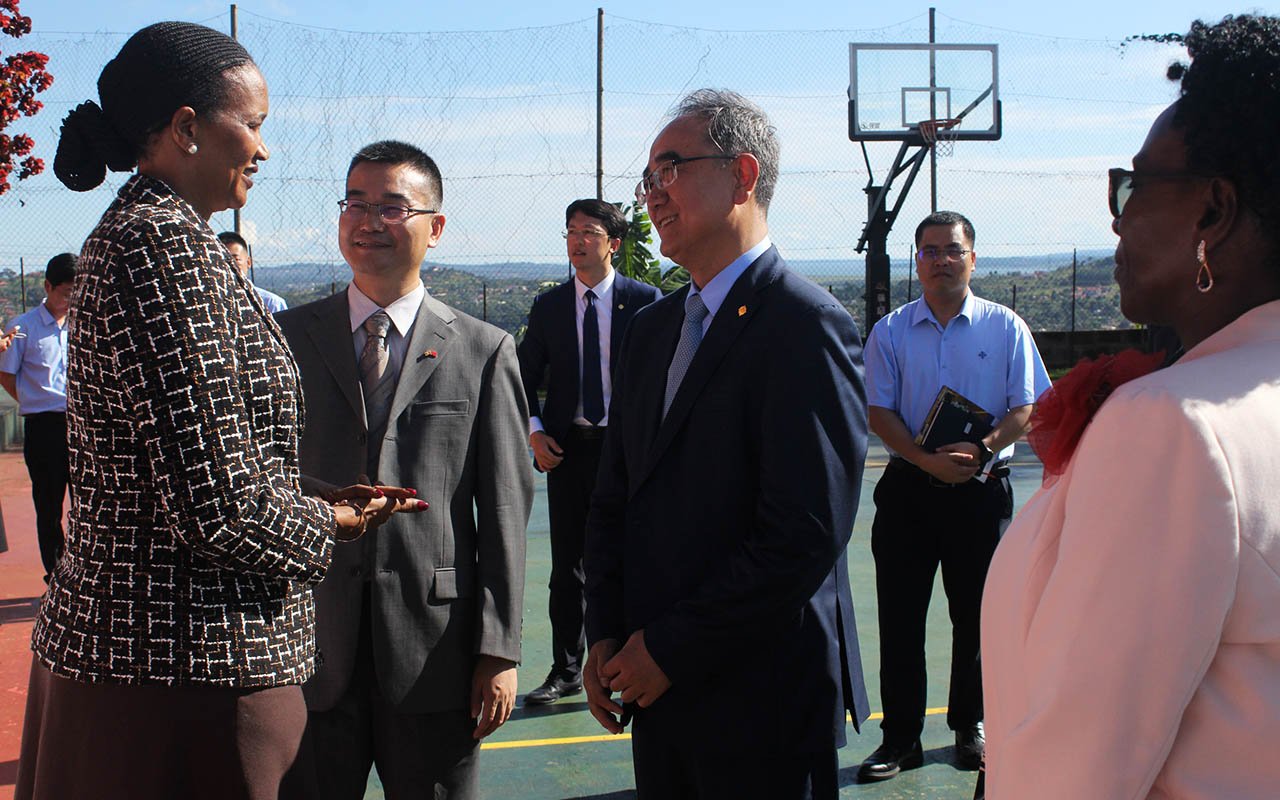Don’t intimidate age limit opponents - US

Criticised. The United States Ambassador, Ms Deborah Malac, during a Daily Monitor interview on Thursday. PHOTO BY RACHEL MABALA
What you need to know:
- Argument. She says her country is concerned about the amendment process.
The United States Ambassador, Ms Deborah Malac, has criticised the intimidation of opponents of a proposal to scrap presidential age limit, saying “to debate, differ and disagree in a non-violent manner” is a basic tenet of a vibrant democracy.
However, government spokesman Frank Tumwebaze has, in a rejoinder, told Ms Malac to keep off Uganda’s internal matters because it is “none of their business …their aid and trade relations are not conditions for meddling into the internal politics of the country”.
In an exclusive interview with this newspaper on Thursday, the envoy said her country would not insert itself to determine the outcome of the constitutional amendment but that their concern was “about the process”.
“It is about people having a different opinion on an issue and being able to say so without being harassed, having their media houses shut. Just because you have a different view does not necessarily mean you are a political opponent,” Ms Malac said in an interview to be published in full tomorrow.
She added: “The hallmark of vibrant democracy is that there are institutions, but also the ability for people to debate, to differ and disagree in a non-violent manner. Neither the government nor the people who may have a very different view should engage in violence.”
There have been episodes of vicious clashes between the police and Opposition supporters during rallies organised by Opposition politicians to galvanise citizens against the amendment of Article 102(b) of the Constitution.
The Article provides that a prospective Ugandan President should be no younger than 35 years and no older than 75 years.
Opponents say the removal of the upper presidential age cap is to enable President Museveni, who currently at 73 years would be ineligible for re-election, to stand again in 2021.
In the Thursday interview, Ms Malac said, “People should not be afraid of somebody simply [because of] having a different view,” she said, adding: “Let people discuss because this (proposed age limit removal) affects all Ugandans at the end of the day. Whatever the outcome is less of the issue. People must be part of the discussion in their own country”.
Mr Tumwebaze in response, however, said Uganda does not need lectures from foreign diplomats and that Ms Malac would do better speaking out against “gross injustices” meted against particularly “black people” in her country, the United States.
Ambassador Malac also described the closure of Pepper Publications Ltd, the publisher of Red Pepper, and the subsequent arrest and incarceration of its executives as “overkill”.
The envoy and the minister briefly sparred on Twitter, this week after Ms Malac tweeted that the media in Uganda was “under assault”.
“Not as worse as in your own country where your president (Trump) can’t even tolerate questions from critical journalists,” Mr Tumwebaze replied.
Pepper Publications was shut on November 21 after its tabloid, the Red Pepper, reported allegations, denied by the government, that Uganda planned to depose Rwandan president Paul Kagame.
Eight of the paper’s directors and editors have been charged with publication prejudicial to national security, offensive communication and disturbing the peace of, among others, the President. They remain on remand at Luzira Maximum Security Prison, drawing a plethora of condemnation from media freedom defenders and rights activists.
Malac in the interview also spoke about Trump’s agenda for Uganda and the fate of Foreign Minister Sam Kutesa.
Govt responds to Malac
Frank Tumwebaze, Information minister and government spokesman: “Her claim that journalism in Uganda is under assault is not only unfortunate but also an act of extreme arrogance. The decision NRM government took long ago to liberalise the media and fully guarantee space for independent press was deliberate and aimed at building our democratic culture. That is why we have more than 300 radio and almost 50 TV stations all licensed all over the country broadcasting freely. However, when certain actors in the media offend certain established laws and public interest and are charged in court, it doesn’t mean the whole journalism is under attack as she concludes. Charging people in court is not an abuse of their rights. Being in court means you have a chance to defend yourself and get justice. True, I told the American ambassador through a Twitter post; to first speak to their own gross injustices at home. We see people and more so black people being shot by their police every other day and it passes as just okay. The government of Uganda knows how to defend the rights of Ugandans, journalists inclusive, without having to be lectured by the US embassy.”
Find Amb Malac's full interview in tomorrow’s paper




